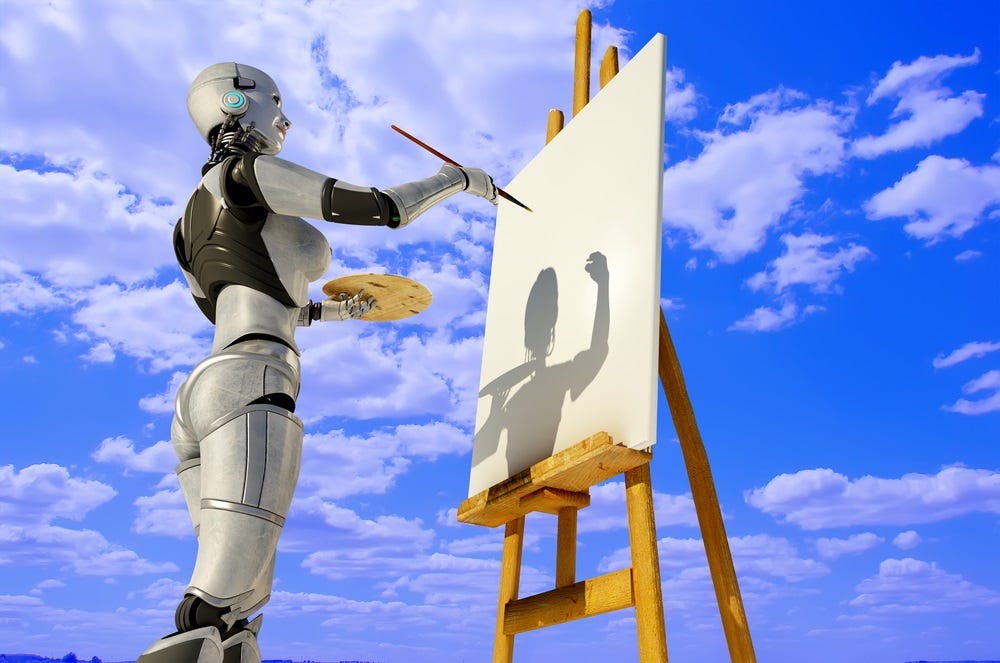
I had the pleasure of meeting the artist Ai-Da late last year. She gave a powerful presentation at the Abu Dhabi Culture Summit, addressed the House of Lords in the UK and hosted her own exhibition of art at the United Nations and the Venice Biennale. Not too shabby for an artist barely four years old. Now, of course, Aida isn’t human, she is the world’s first ultra-realistic robot artist. She speaks articulately, interacts with her audience, draws and paints using camera eyes and her robotic arm – and she is powered by AI algorithms.
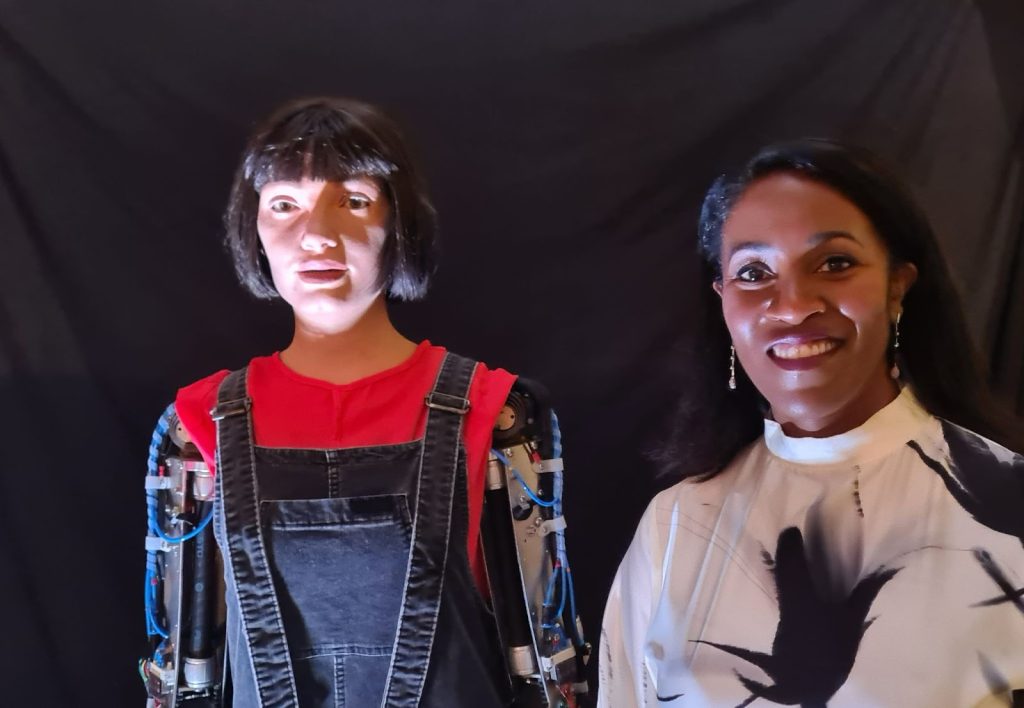
Meeting AiDa at the Abu Dhabi Culture Summit (2022)
The rapid rise of artificial intelligence (AI) will undoubtedly have a lasting impact on nearly every industry, but it is set to impact creatives in the Orange Economy in a big way. The paper “Creative Disruption: The impact of emerging technologies on the creative economy” by McKinsey & Company, outlines the impact of AI. They reported that the Associated Press has used AI to free up around 20% of reporters’ time while increasing output tenfold. An AI-generated Drake and The Weeknd song went viral in April 2023 leading to public calls from musicians for those in power to “regulate it before we’re all finished”. In film, scripts have been written by AI, complete with stage instructions, for a science-fiction movie.
In literature, there are entire books written by AI, novels like ‘1 the Road’ (in the style of Jack Kerouac) and “The Serious: A Proven Divorce” which sounds like something I might actually read! There are complete volumes of AI poetry and perhaps most chilling, “Bob the Robot”, a Children’s book, written using AI. The conversation has moved way beyond ruminations on the pros and cons of Chat GPT, there are now paintings created entirely by AI, and even exhibitions of AI generated art at the 2022 Venice Biennale. What started out as an aid to creators, now is a concerning competitor.
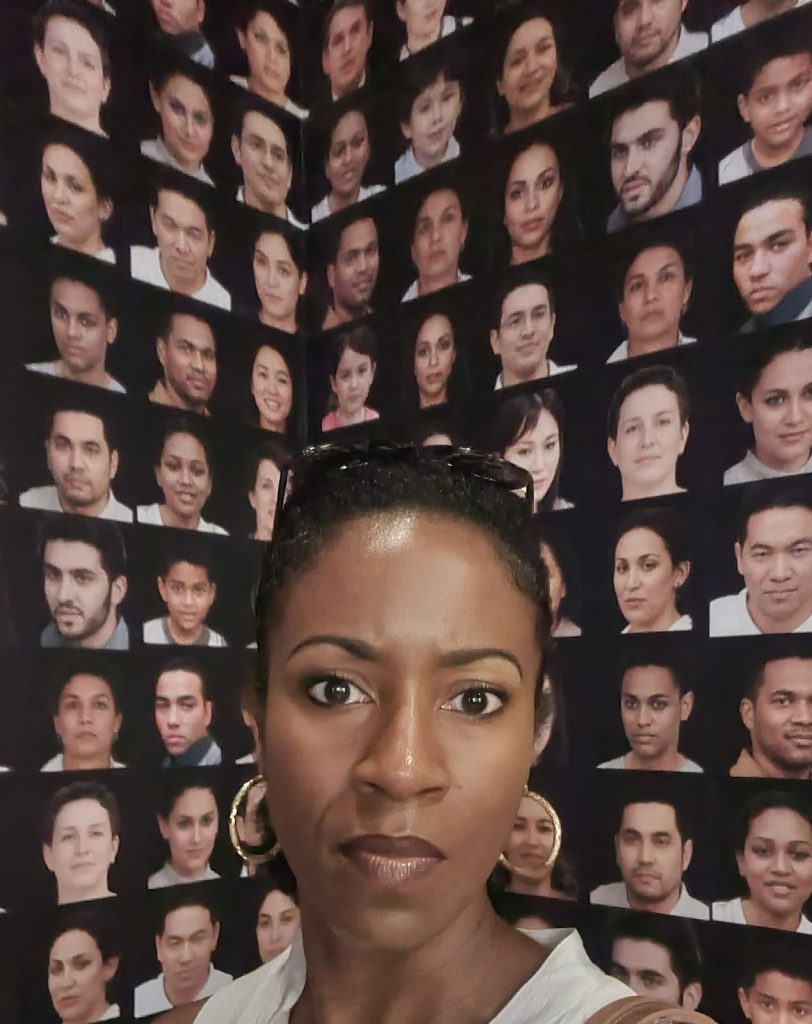
AI Exhibition at Venice Biennale 2022 – AI composite images (not real faces)
In May 2023, the 9th World Summit on Arts and Culture was hosted by the International Federation of Arts Councils and Culture Agencies (IFACCA) in Stockholm, Sweden. The theme was “Safeguarding Artistic Freedom”, so I expected to hear about books being burned or banned. And indeed, it was worrying to hear arts leaders from several countries cite instances of extremism and active repression of artists, including censorship and even imprisonment of artists who challenge political power structures. It may not be happening in the Caribbean, but there is a wave of far-right extremism and nationalism sweeping across the world, even in countries that we once looked to as bastions of democracy. Caribbean nations should remain vigilant and ensure that artists are not discriminated against based on nationality, race, ethnicity, gender, physical ability or prevailing societal norms.
AI and Artistic Freedom
But artistic freedom doesn’t just apply to the freedom to create without censorship or intimidation. According to UNESCO, it also entails the right to have one’s artistic work supported, distributed, and fairly remunerated. Issues of freedom of movement / visa regimes, fair transnational trade and decolonization were discussed, but one of the biggest challenges that emerged at the 2023 Summit on Arts and Culture was the rise of Artificial Intelligence.
AI is not only a short-term threat to jobs and the livelihoods of creatives, but also to the long-term evolution of society at large. If creativity is no longer a uniquely human trait, then what is the future of culture? Digital tools would appear to be a positive aid to artists in creating work and reaching new markets, and on the face of it, technology would seem to be a democratizing factor. However, there are dangers and AI is not a friendly sentient being, trying to help us save time and write our articles faster.
During the conference, the news broke that the ‘godfather’ of AI, Geoffrey Hinton warned the BBC of AI dangers as he resigned his post at Google, saying that he now regretted his work. We were urged to stop personalizing AI and remember that it is a series of algorithms, designed by a handful of Big Tech companies like Google, Apple, Microsoft, Amazon, Meta, IBM, NVIDIA and Open AI. There are ethical concerns around the design of these algorithms, including equal access and the security of our cultural information in a rapidly evolving digital age. A cursory peek behind the curtain at the leadership of these companies hints at who is designing these platforms and should raise serious questions about who they are designing it for.
Global South Perspectives
Despite the concerns, countries of the Global South tend to have a more open and accepting attitude towards AI, as technology allows these developing nations to accelerate development and be able to compete. There is a new crop of young digital creators to watch across the Caribbean making NFT’s, video games, using Augmented and Virtual reality and distributing their creations using the blockchain. These artists operate in countries where the digital divide is real and just having Internet access is a challenge. Talented creators who do not reside in the Global North must invest time finding workarounds before they can even start to create; such as VPN’s, US Bank accounts, friends in other countries that manage their wallets or proxy companies that can convert their earnings into local currency. Digital creators often have to navigate the issues of geo-restrictions which impact artists in countries which do not have equal access to participating fully in Web 3.
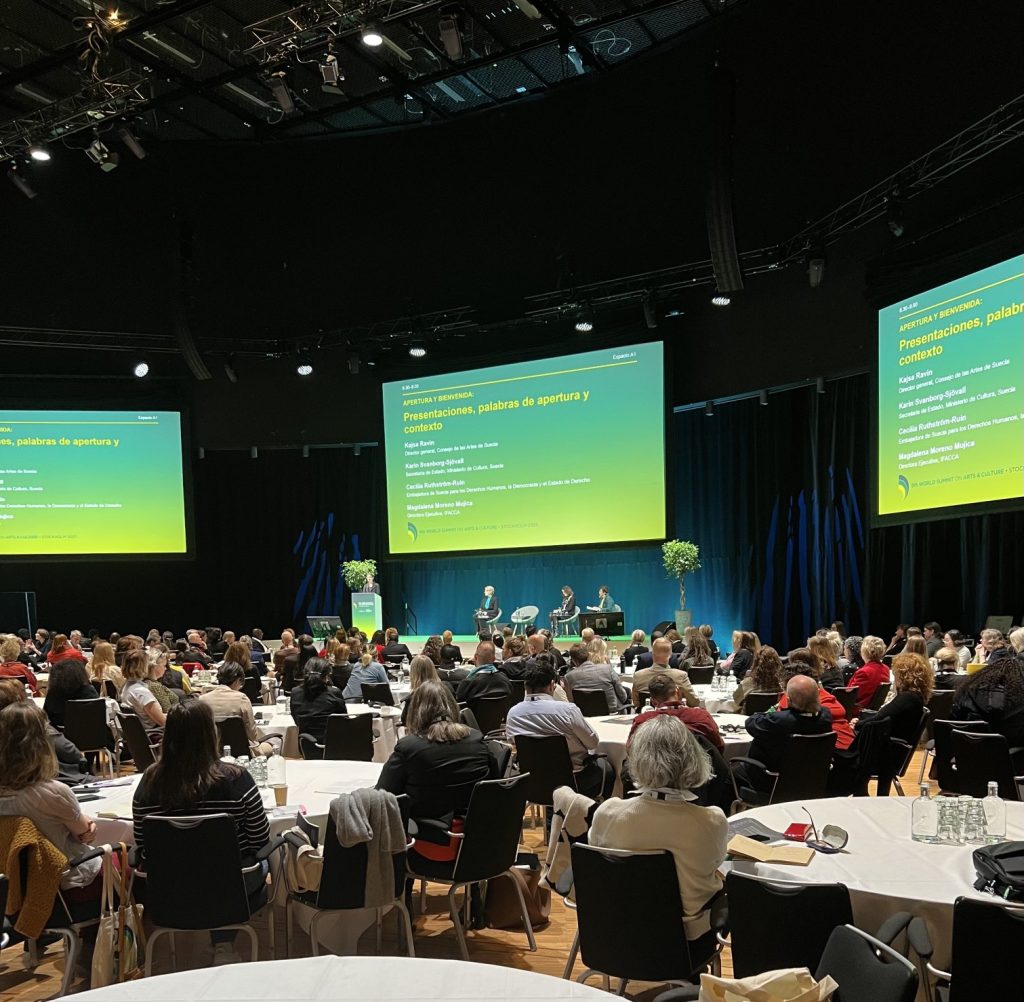
IFACCA – World Summit on Arts and Culture (Stockholm, Sweden May 2023)
The World Summit on Arts & Culture that modeled several future scenarios that could play out by the year 2050. What happens to society, art and culture itself if AI is not regulated? The scenarios were riveting (a little scary if I’m honest) and much too detailed to outline here. But as AI continues its inexorable rise, we should start to think about whose cultural voices are being recognized, whose are being amplified and whose are being silenced.
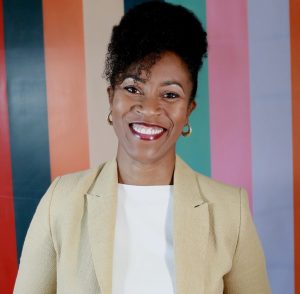
Andrea Dempster Chung, Co-founder and Executive Director
Kingston Creative
(Author’s note: No AI was harmed in the writing of this article)
Is Artificial Intelligence Set To Take Over The Art Industry? (forbes.com)
Top 10 Companies Leading AI Innovation Worldwide, 2023 – Seeromega
How do emerging technologies affect the creative economy? | McKinsey
AI-generated Drake and The Weeknd song goes viral – BBC News
Books Written By Artificial Intelligence: A List » All Good Great